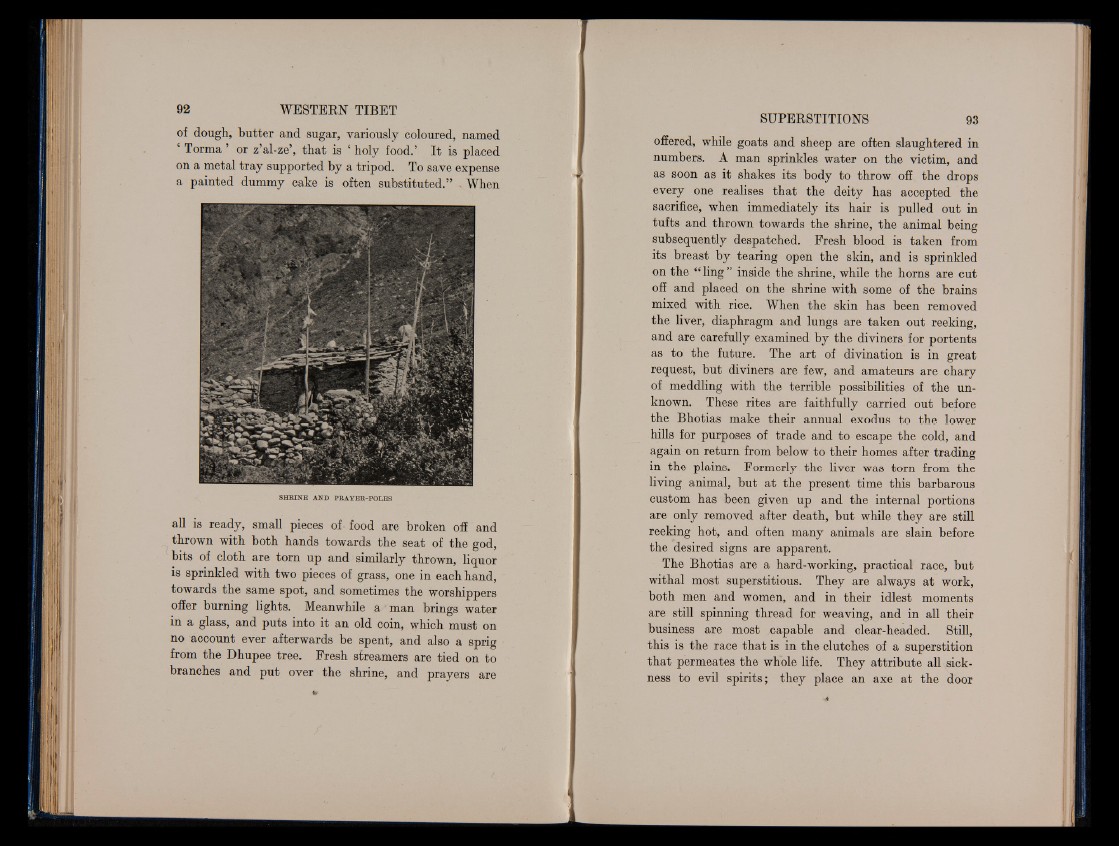
of dough, butter and sugar, variously coloured, named
‘ Torma ’ or z’al-ze’, that is ? holy food.’ It is placed
on a metal tray supported by a tripod. To save expense
a painted dummy cake is often substituted.” - When
SHEENE AND PRAYER-POLES
all is ready, small pieces of food are broken off and
thrown with both hands towards the seat of the god,
bits of cloth are torn up and similarly thrown, liquor
is sprinkled with two pieces of grass, one in each hand,
towards the same spot, and sometimes the worshippers
offer burning lights. Meanwhile a man brings water
in a glass, and puts into it an old coin, which must on
no account ever afterwards be spent, and also a sprig
from the Dhupee tree. Fresh streamers are tied on to
branches and put over the shrine, and prayers are
offered, while goats and sheep are often slaughtered in
numbers. A man sprinkles water on the victim, and
as soon as it shakes its body to throw off the drops
every one realises that the deity has accepted the
sacrifice, when immediately its hair is pulled out in
tufts and thrown towards the shrine, the animal being
subsequently despatched. Fresh blood is taken from
its breast by tearing open the skin, and is sprinkled
on the “ ling ” inside the shrine, while the horns are cut
off and placed on the shrine with some of the brains
mixed with rice. When the skin has been removed
the liver* diaphragm and lungs are taken out reeking,
and are carefully examined by the diviners for portents
as to the future. The art of divination is in great
request, but diviners are few, and amateurs are chary
of meddling with the terrible possibilities of the unknown.
These rites are faithfully carried out before
the Bhotias make their annual exodus to the lower
hills for purposes of trade and to escape the cold, and
again on return from below to their homes after trading
in the plains. Formerly the liver was torn from the
living animal, but at the present time this barbarous
custom has been given up and the internal portions
are only removed after death, but while they are still
reeking hot, and often many animals are slain before
the desired signs are apparent.
The Bhotias are a hard-working, practical race, but
withal most superstitious. They are always at work,
both men and women, and in their idlest moments
are still spinning thread for weaving, and in all their
business are most .capable and clear-headed. Still,
this is the race that is in the clutches of a superstition
that permeates the whole life. They attribute all sickness
to evil spirits; they place an axe at the door